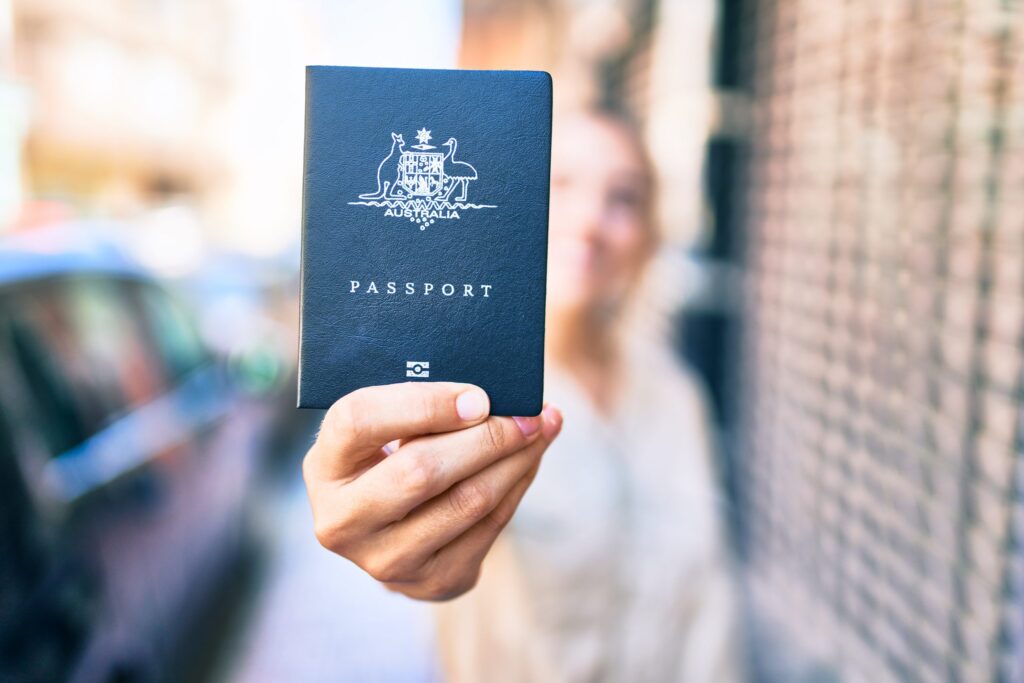What is a diplomatic passport?
Most of us ordinary mortals will never hold or even see a diplomatic passport unless employed as an immigration official at a border. There is no choice you can make about having an ordinary or a diplomatic passport. All passports are issued by individual national governments, including diplomatic passports. However, unless you are a representative of your government in its diplomatic service, you will just get an ordinary passport. To be honest, most of the time you ever need a passport, it doesn’t really give you a huge advantage having a diplomatic passport. You are still expected to observe the rules of the country you visit or work in, even if you work in a diplomatic capacity on behalf of your own government.
To clarify what a diplomatic passport is in Australia, note that Australian citizens who are employed in the diplomatic service overseas will be issued diplomatic passports. They will present these when asked to do so or when filling in forms when on active service overseas. If an Australian citizen who is employed as a diplomat in Malaysia decides to have a holiday in Bali or Fiji, it will not be the diplomatic passport used, but an ordinary Australian passport.
On the other hand, those who work in embassies and high commissions in Australia on behalf of their own country’s government will have diplomatic passports issued by their own country. They will be expected to show these when asked to do so in Australia. Unless they are on official government business, holders of diplomatic passports would not normally use their diplomatic passports if visiting another country on unofficial business, e.g. having a holiday.
Who is eligible for a diplomatic passport?
Although issuing diplomatic passports is an affair governed by individual countries, typically only government representatives serving in their country’s diplomatic service will be issued them. In Australia, it is the Department of Foreign Affairs and Trade (DFAT) issues passports of all types, including ordinary passports, emergency passports, and diplomatic or official passports. Typically, in Australia, an application for a diplomatic or official passport would be accepted by the nominating government agency and assessed for eligibility by DFAT before such a passport is issued. DFAT can cancel a diplomatic or official passport if it is detected that the official has used it improperly.
What are the advantages of having a diplomatic passport?
The advantages of using a diplomatic passport are basically to streamline immigration requirements and make travel to and from the countries where diplomatic service is being carried out. The rules about holders of diplomatic passports are made by the individual countries’ governments, not the issuing countries. In Australia, diplomats who hold diplomatic passports must still apply for a diplomatic visa (subclass 955) before arrival in Australia and observe Australian rules and laws.
Many countries provide a level of diplomatic immunity to holders of diplomatic passports. This again depends on the individual countries’ rules but may mean immunity from arrest, prosecution, and searching of home or property. In Australia, as one example, there are three levels of diplomatic immunity. The highest level, the Red card level, provides the greatest immunity, while green card holders, mainly consular staff, have reduced immunity. There may be exceptions to even the highest levels of immunity if the individual’s government agrees that prosecution, e.g. for a grave criminal offense, can proceed.
Conclusion
Diplomatic passports are a category of passports issued by individual countries for their diplomatic staff employed overseas. Most countries accept that these passport holders have slightly different treatment than holders of ordinary passports, although all diplomatic passport holders are expected to apply for the correct visas and observe the rules and laws in the country they have been sent to on behalf of their government. Diplomatic passports may need to be translated to support a visa application. These translations should always be performed by authorized, professional translators.


















